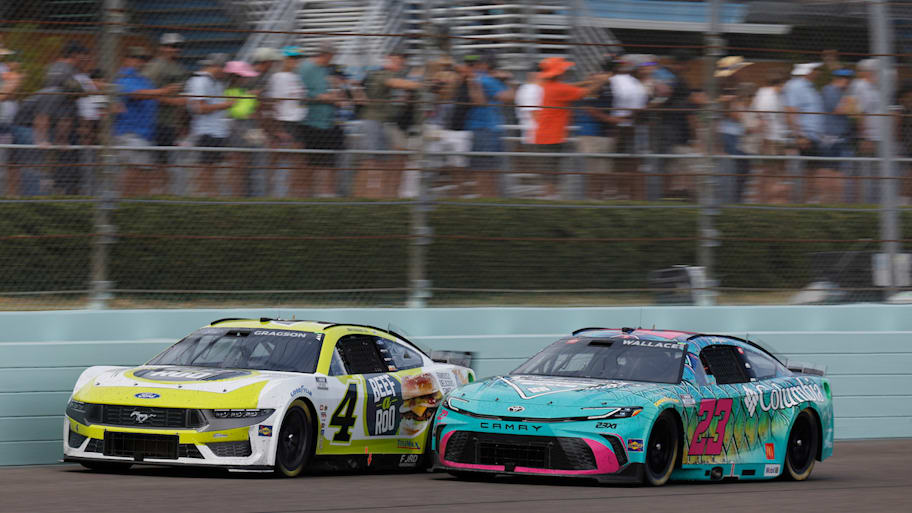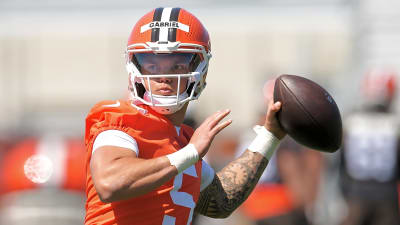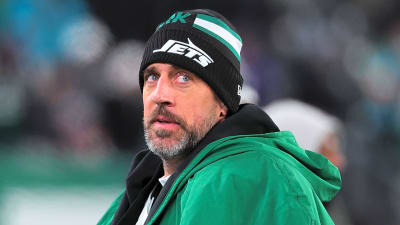
On Thursday, the U.S. Court of Appeals, which previously heard a case from NASCAR about overturning a preliminary injunction awarded to the teams in December, ruled in favor of the sanctioning body.
The injunction had allowed 23XI Racing and Front Row Motorsports, who collectively make up six of the 36 Chartered Teams in the NASCAR Cup Series, to continue competing as such for the duration of the ongoing lawsuit between the two parties.
With this ruling, which vacates the preliminary injunction, both 23XI Racing and Front Row Motorsports are at risk of losing their charters – not only the ones that they previously purchased/inherited, but also the ones they obtained from Stewart-Haas Racing in the off-season.
Neither 23XI Racing, Front Row Motorsports, nor their lead attorney Jeffrey Kessler have made a statement on the ruling from the U.S. Court of Appeals.
23XI Racing and Front Row Motorsports will have a 14-day window to petition for a rehearing or a hearing in front of all of the appeals judge. However, the ruling would not be eligible to come into effect until seven days after that deadline passes.
That 14-day window closes on June 19, with the seven-day waiting after that (in which the reversal of the injunction would be able to be enforced) would open up on June 26 – just days before the NASCAR Cup Series event at EchoPark Speedway (formerly Atlanta Motor Speedway).
Why Did The Court Rule in NASCAR's Favor?
In court documents filed on Thursday, June 5, immediately after the decision was made by the U.S. Court of Appeals, Circuit Judges Niemeyer, Agee, and Thacker issued the following briefing:
"In entering a preliminary injunction in this case, the district court held that the plaintiffs were likely to succeed on the merits of their antitrust action against [NASCAR and it's CEO, James France], because NASCAR, as an alleged monopolist, required the plaintiffs, as a condition of doing business with them, to enter into a release for past conduct," court documents read. "Because that theory of antitrust law is not supported by any case of which we are aware, we conclude that it was not a likely basis for success on the merits and vacate the injunction."
In this particular case, the Circuit Judges ruled that, as is necessary for a preliminary injunction, that this one in particular was "mandatory rather than prohibitory" since not getting the injunction would not guarantee 23XI Racing and Front Row Motorsports' participation in NASCAR Cup Series events, since they didn't sign the 2025 Charter Agreement.
"Viewing the district court's preliminary injunction under this demanding standard, it is not clear, let alone indiputably so, that the antitrust theory advanced by the plaintiffs and adopted by the district court is likely to succeed on the merits, as necessary for a preliminary injunction."
However, the main holdup in allowing this preliminary injunction to stand, comes from the fact that there is no case law to support the decision made by the district court.
"The court supplied no case law to support that theory. Indeed, we have found no case to support it, and the defendants claim that there is none. Rather, the court only cited cases holding that it may violate public policy for an agreement to operate 'as a prospective waiver of a party's right to pursue statutory remedies for antitrust violations'.
The U.S. Court of Appeals dictates that the case cited (Mitsubishi Motors Corp. v. Soler Chrysler-Plymouth, Inc., 473
U.S. 614, 637 n.19 (1985)) "[was] hardly relevant to the plaintiffs claims because here there is no agreement; the plaintiffs refused to sign the 2025 Charter Agreement."
"Finally, the fact that a release may violate public policy by being prospective does not make it anticompetitive, as required for a violation of the antitrust laws."
As a final statement, the Circuit Judges said: "In short, because we have found no support for the proposition that a business entity or person violates the antitrust laws by requiring a prospective participant to give a release for past conduct as a condition for doing business, we cannot conclude that the plaintiffs made a clear showing that they were likely to succeed on the merits of that theory. And without satisfaction of the likelihoof-of-success element, the plaintiffs were not entitled to a preliminary injunction."
"We therefore conclude that the district court abused its discretion in entering the preliminary injunction that it did. This is all the more true in the view of the heightened standard for issuing a mandatory preliminary injunction and because the one here requested two parties to engage in a business that one party claims to be illegal.
What Did The Teams Say?
A statement from Jeffrey Kessler, Lead Attorney for 23XI Racing and Front Row Motorsports, says: "We are disappointed by today's ruling by the Fourth Circuit Court of Appeals and are reviewing the decision to determine our next steps."
"This ruling is based on a very narrow consideration of whether a release of claims in the charter agreements is anti-competitive and does not impact our chances of winning at trial scheduled for December 1. We remain confident in our case and committed to racing for the entirety of this season as we continue our fight to create a fair and just economic system for stock car racing that is free of anticompetitive, monopolistic conduct."
Recommended Articles:
More must-reads:
- Stanley Cup Final Game 2 takeaways: Panthers get even as Brad Marchand keeps building legacy
- Stars had to move on from Peter DeBoer, but upgrading will be tough
- The 'Most career goals in Game 7 a Stanley Cup Playoffs series' quiz
Breaking News
Trending News
Customize Your Newsletter
 +
+
Get the latest news and rumors, customized to your favorite sports and teams. Emailed daily. Always free!







